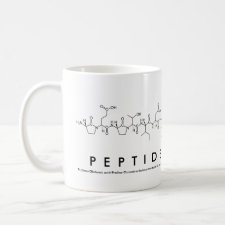
Authors: Tai DF, Lin YF, Lu KH, Chen GY, Shu HC
Article Title: A Direct Immersion System for Peptide Enrichment.
Publication date: 2012
Journal: Journal of the Chinese Chemical Society
Volume: 59
Issue: (3)
Page numbers: 338-344.
DOI: 10.1002/jccs.201100635
Abstract: A complementary peptide separation and purification system, using a novel, artificial, affinity-type extraction material, is described. Cellulose paper was first coated with a 3-methacryloxypropyltrimethoxysilane (MPS) layer, followed by imprinting with peptides, to form an approximately 2-μm layer of film (molecularly imprinted polymer film; MIPF) on both sides and resulted in an increased affinity toward the corresponding template as well as to matched polypeptides. MIPF-cellulose paper (MIFC) was immersed in 2% peptide solution (acetonitrile/water) for the sorption of targeted-peptides at room temperature for an hour in a 96-well microtiter plate. Desorption of targeted-peptides from the MIPF- and NIPF (non-imprinted polymeric film)-coated filter papers was nearly complete (~99%) in two desorptions of 10 min using 5% acetic acid in water. Clean extracts of targeted-peptides were obtained demonstrating the suitability of MIPF-coated filter papers for the extraction or analysis of biological samples. To compare their extraction characteristics under various conditions, analyses were carried out by an enzyme-linked immunosorbent assay (ELISA) microplate reader as peptide-detecting/peptide-capturing microarrays. In load ability studies using acetonitrile/water, peptide masses up to 100 μg could be applied onto a piece of MIPF coated filter paper (0.7 cm in diameter)
Template and target information: peptides
Author keywords: molecular imprinting, Solid-phase extraction, Direct-immersion, separation, peptides, molecular recognition



Join the Society for Molecular Imprinting

New items RSS feed
Sign-up for e-mail updates:
Choose between receiving an occasional newsletter or more frequent e-mail alerts.
Click here to go to the sign-up page.
Is your name elemental or peptidic? Enter your name and find out by clicking either of the buttons below!
Other products you may like:
 MIPdatabase
MIPdatabase









